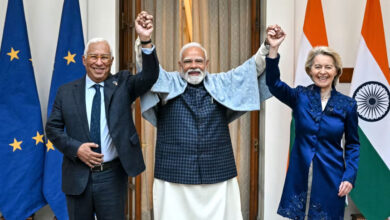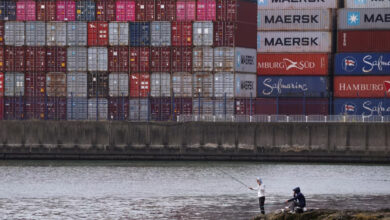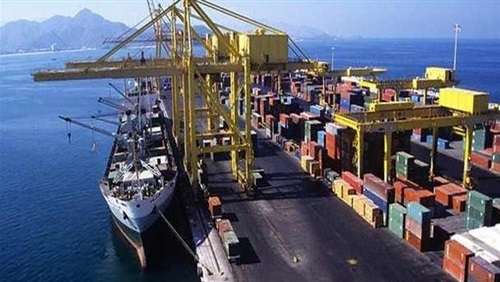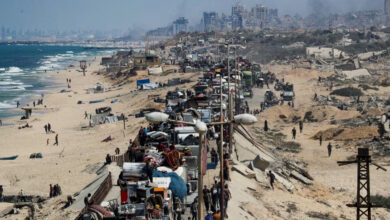Leaders from the world’s top economies prepared for tough talks with US President Donald Trump on climate change and trade on Friday as the G20 summit commenced in Germany amid the threat of violent protests.
The meeting in the port city of Hamburg comes at a time of major shifts in the global geo-political landscape, with Trump’s “America First” policies pushing Europe and China closer together.
Trump will meet Russia’s Vladimir Putin for the first time on Friday afternoon — an encounter that will be intensely scrutinized following allegations by US intelligence agencies that Moscow meddled in the US election to help Trump win.
The summit also brings together Trump and Chinese President Xi Jinping at a time when Washington is ratcheting up pressure on Beijing to rein in North Korea after it test-launched an intercontinental ballistic missile.
Amid the big egos and seemingly intractable conflicts, the host, German Chancellor Angela Merkel, faces the daunting task of steering leaders toward a consensus on trade, climate and migration – all issues that have become more contentious since Trump entered the White House.
Trump’s bilateral with Putin was scheduled to take place just 15 minutes after the start of the discussion on climate, a scheduling conflict that could complicate a deal.
“Merkel, as the G20 host, must not sacrifice ambition for unity. Instead, we need a G19 commitment to climate action that demonstrates the intent to implement and even go beyond what 195 nations agreed to in Paris,” said Jennifer Morgan of Greenpeace, referring to the climate accord Trump has pledged to leave.
Facing her own election in two months, Merkel met with Trump for one hour at a hotel in Hamburg on Thursday evening to try to overcome differences that envoys have been unable to settle in weeks of intense talks, including a last minute trip to Washington by the chancellor’s top economic adviser.
A senior German official involved in the talks said he expected negotiators would be working around the clock to try to break the deadlock before Saturday, the final day of the summit.
On climate, sources told Reuters that US officials were pushing for a mention of fossil fuels as a viable alternative to cleaner energy sources and that the Europeans were resisting. In addition to the United States, Saudi Arabia was proving difficult to get on side.
On trade, the sources said that Washington was backtracking on language condemning protectionism that Trump agreed to at a meeting in Sicily in late May.
Hanging over the trade discussions is a threat by Washington to use a Cold War-era law to restrict steel imports based on national security concerns — a step that would hit the Chinese as well as partners in Europe.
German Foreign Minister Sigmar Gabriel suggested on Thursday that the measures could trigger a transatlantic trade war.
As leaders arrived on Thursday, riot police fired water cannons at a group of about a thousand protesters in a demonstration organizers had dubbed “Welcome to Hell”.
Some 20,000 police from all of Germany’s 16 states have been deployed on the streets of Hamburg. They will be facing off against up to 100,000 protesters, including an estimated 8,000 who police say are prepared to use violence.




